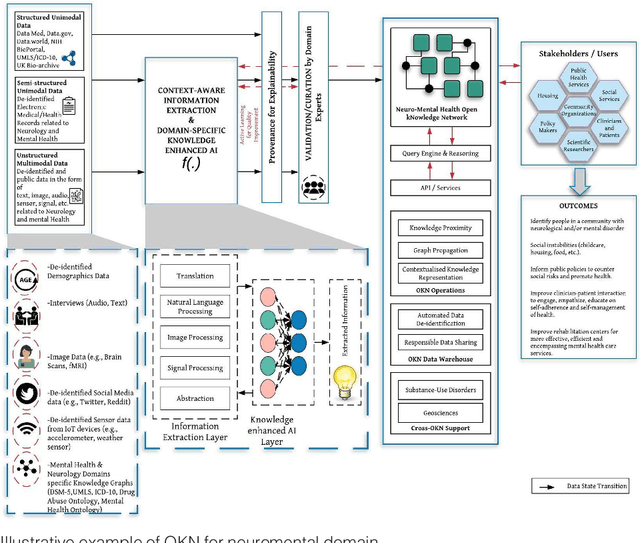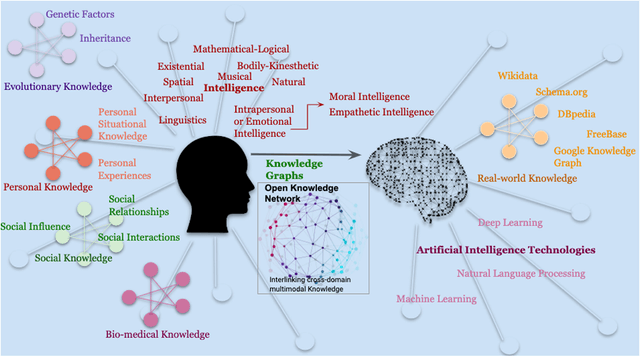Amelie Gyrard
IoT-Based Preventive Mental Health Using Knowledge Graphs and Standards for Better Well-Being
Jun 19, 2024



Abstract:Sustainable Development Goals (SDGs) give the UN a road map for development with Agenda 2030 as a target. SDG3 "Good Health and Well-Being" ensures healthy lives and promotes well-being for all ages. Digital technologies can support SDG3. Burnout and even depression could be reduced by encouraging better preventive health. Due to the lack of patient knowledge and focus to take care of their health, it is necessary to help patients before it is too late. New trends such as positive psychology and mindfulness are highly encouraged in the USA. Digital Twin (DT) can help with the continuous monitoring of emotion using physiological signals (e.g., collected via wearables). Digital twins facilitate monitoring and provide constant health insight to improve quality of life and well-being with better personalization. Healthcare DT challenges are standardizing data formats, communication protocols, and data exchange mechanisms. To achieve those data integration and knowledge challenges, we designed the Mental Health Knowledge Graph (ontology and dataset) to boost mental health. The Knowledge Graph (KG) acquires knowledge from ontology-based mental health projects classified within the LOV4IoT ontology catalog (Emotion, Depression, and Mental Health). Furthermore, the KG is mapped to standards (e.g., ontologies) when possible. Standards from ETSI SmartM2M, ITU/WHO, ISO, W3C, NIST, and IEEE are relevant to mental health.
Knowledge Graphs and Knowledge Networks: The Story in Brief
Mar 07, 2020

Abstract:Knowledge Graphs (KGs) represent real-world noisy raw information in a structured form, capturing relationships between entities. However, for dynamic real-world applications such as social networks, recommender systems, computational biology, relational knowledge representation has emerged as a challenging research problem where there is a need to represent the changing nodes, attributes, and edges over time. The evolution of search engine responses to user queries in the last few years is partly because of the role of KGs such as Google KG. KGs are significantly contributing to various AI applications from link prediction, entity relations prediction, node classification to recommendation and question answering systems. This article is an attempt to summarize the journey of KG for AI.
 Add to Chrome
Add to Chrome Add to Firefox
Add to Firefox Add to Edge
Add to Edge